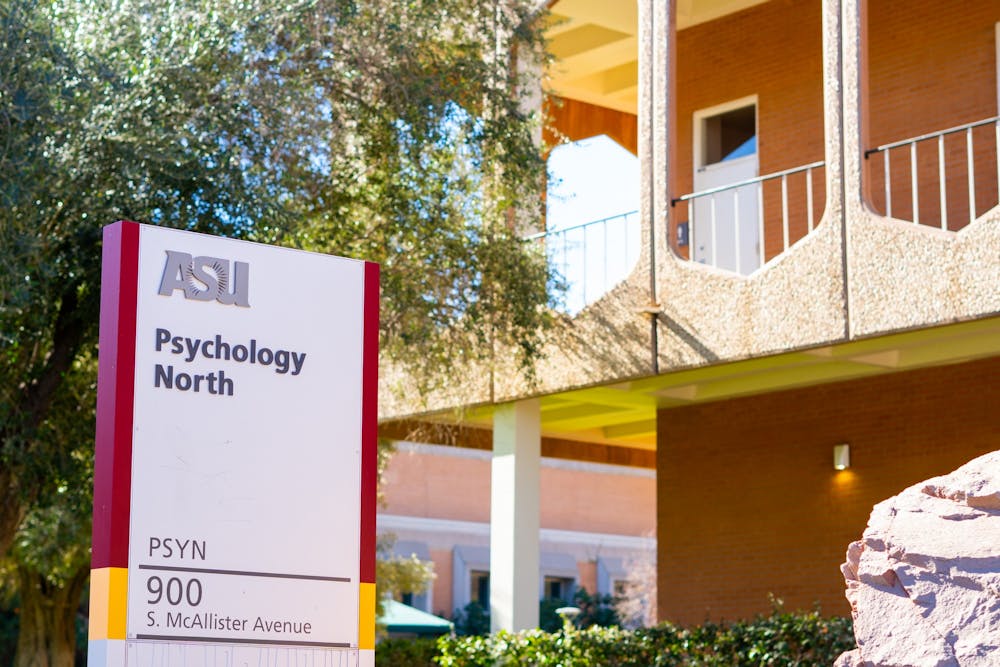A new scholarship for psychology students from underrepresented backgrounds will be able to double its amount of recipients for the next school year after raising an additional $60,000 in funds.
The Jenessa Shapiro Scholarship began its inaugural year in fall 2020 to honor the late educator for whom the scholarship was named after, and plans to expand its awards from two students to four.
“We want to make it sustainable so we can keep growing while, at the same time, increasing the number of students that we are able to help,” said Steven Neuberg, foundation professor and chair for the department of psychology.
The scholarship is offered to undergraduate students who participate in the ENERGIZE program, a research initiative within the department of psychology that connects students from underrepresented backgrounds in the field with more than 20 research labs. The application for the next school year opens on April 15, according to scholarship organizer and psychology professor, Art Glenberg.
The two main requirements to apply for the scholarship include being a part of the ENERGIZE program and having either high financial need or unmet financial need. Additionally, students must be identified by a faculty member for demonstrating exceptional interest and potential in psychology.
Valeria Gutierrez, a sophomore psychology major, was one of the first recipients of the scholarship. She said it will allow her to explore different branches of psychology through the labs early in her career before she graduates.
“It’s just my second year so I haven’t been able to take most of the higher up classes,” Gutierrez said. “(I am) actively contacting other professors, formulating (my) own things a lot sooner than I would have if I didn’t get the scholarship.”
Shapiro was a doctoral psychology student at ASU who earned a Ph.D. in social psychology. She died on Dec. 6, 2018, after a long battle with breast cancer.
During her educational career at ASU and teaching at UCLA, Shapiro emphasized the importance of uplifting underrepresented populations within the field of psychology.
“She was passionate, enthusiastic and positive,” Neuberg said. “She made everything around her that much better, much more interesting, much more positive and opportunity grabbing.”
Neuberg was one of Shapiro’s professors while she was studying for her Ph.D. During her time at ASU, Shapiro and her husband, Noah Goldstein, grew close to Neuberg as a mentor and friend.
“She was an incredible doctoral student in terms of her intellect, her scholarship and quality of a worker in science, but she was also a force of nature,” Neuberg said.
To honor her, Goldstein and Neuberg created the Jenessa Shapiro Scholarship for students in the ENERGIZE program with an initial donation of $25,000.
In December, Neuberg reached out to roughly 60 alumni for donations to add to the scholarship. From those donations, the scholarship raised an additional $35,000 while Goldstein added another $25,000 to the fund, amounting to an estimated $60,000 that will be given to future awardees.
“I feel really good about that,” Neuberg said. “We’ll be able to help, probably more than two students per year, for a while. It makes the fund more sustainable.”
Gutierrez currently conducts research focusing on the effects of stress on parents with the Arizona Twin Project. At the lab, she tracks data from parents who wear actigraphy watches, which track their movements throughout the day and while they sleep.
Gutierrez resonated with the scholarship and its goal to promote a more diverse culture in psychology.
“What you picture in your mind isn’t a very diverse field,” Gutierrez said. “For people who are underrepresented in research, a lot of the time that’s going to be a boundary that’s going to stop you from pursuing (this career).”
As a Mexican-American student, Gutierrez finds solidarity with students of similar backgrounds who are pursuing psychology like her.
“With Mexican culture, women, a lot of the time, are just expected to do housework,” Gutierrez said. “So to see many people in this generation focus more on their studies to try to make a name for themselves is really incredible.”
With COVID-19 restrictions, the ENERGIZE program has not been able to do many of the planned in-person events for students, like pizza dinners and professional development discussions. However, the program continues to offer students mentoring remotely and offer students opportunities to further their research experience.
“It’s become so clear that students don’t know … how important it is to get research experience,” said Glenberg. “We hope to get this knowledge out there so broadly that everybody knows about it.”
Reach the reporter at kncasti1@asu.edu and follow @kristencasti11o on Twitter.
Like The State Press on Facebook and follow @statepress on Twitter.
Continue supporting student journalism and donate to The State Press today.
Kristen Apolline Castillo is the community and culture editor for The State Press. She has been working for the publication for two years, where she also reported for the desk.




